Jade Varden's Blog, page 19
January 26, 2015
Writing 101: Writing Exercise
Stuck? Don't know what to write next? Can't create something that works? It's okay. I have a writing exercise that can help you with all of that.
Just Keep Swimming
Sylvia Plath practically wrote an entire chapter about trying to start a book in The Bell Jar. I've stared at blank screens way more times than I'd like to admit. Sometimes, just getting started with something is the hardest possible writing you'll have to do. There's a way to fix it, and it's easier than you think.
What's the key to shaking yourself out of that funk and turning a blank screen into big chunks of text? Just keep swimming.
No, I'm not telling you to go jump in a lake. Remember Finding Nemo? Fish have to swim, even when they have no idea where they're going. And writers have to write...even if they have no idea where they're going.
So if you're stuck and you don't know where to go, just start writing. Pick something to describe, and describe it. Emily Bronte was fascinated by an old house near her own, and she began to write about it. Eventually, she had the book Wuthering Heights.
Sometimes, you have to just start writing. Maybe you don't know what you're writing about or why. But you do it anyway, because you're a writer. If you get stuck, just keep swimming. Eventually, all that forward motion will take you somewhere.
Just Keep Swimming
Sylvia Plath practically wrote an entire chapter about trying to start a book in The Bell Jar. I've stared at blank screens way more times than I'd like to admit. Sometimes, just getting started with something is the hardest possible writing you'll have to do. There's a way to fix it, and it's easier than you think.
What's the key to shaking yourself out of that funk and turning a blank screen into big chunks of text? Just keep swimming.
No, I'm not telling you to go jump in a lake. Remember Finding Nemo? Fish have to swim, even when they have no idea where they're going. And writers have to write...even if they have no idea where they're going.
So if you're stuck and you don't know where to go, just start writing. Pick something to describe, and describe it. Emily Bronte was fascinated by an old house near her own, and she began to write about it. Eventually, she had the book Wuthering Heights.
Sometimes, you have to just start writing. Maybe you don't know what you're writing about or why. But you do it anyway, because you're a writer. If you get stuck, just keep swimming. Eventually, all that forward motion will take you somewhere.
Published on January 26, 2015 05:30
January 25, 2015
Why I Love/Hate Writing
Every writer hates writing sometimes. Or maybe it's just me.
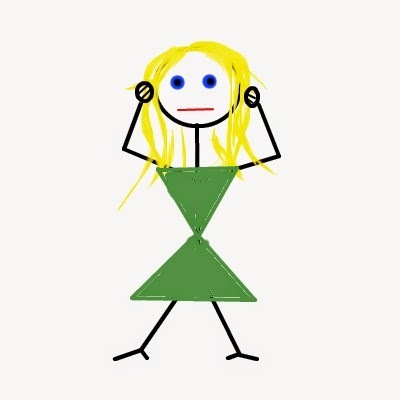
Visit Taking It One Page at a Time, a blog by freelancer and friend of the blog Danica Page, to find out why I fell in love with writing...and why sometimes, I hate it.

Visit Taking It One Page at a Time, a blog by freelancer and friend of the blog Danica Page, to find out why I fell in love with writing...and why sometimes, I hate it.
Published on January 25, 2015 05:30
January 22, 2015
Writing 101 Redux: Copyrighting Your Writing
Are you copyrighting your books? Are you doing it the right way? Depending on where you are in the world, the laws are different. Know them, and protect your writing from theft.
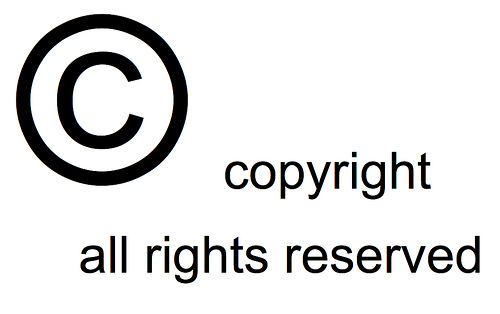
Get into all the details of copyrighting your books with me today in this Throwback Thursday Writing 101 tip.

Get into all the details of copyrighting your books with me today in this Throwback Thursday Writing 101 tip.
Published on January 22, 2015 05:30
January 21, 2015
Writing 101: Calling a Spade a Spade
You can call me an indie author if you like, but you can also call me an autonomous wordsmith if you really feel like it.
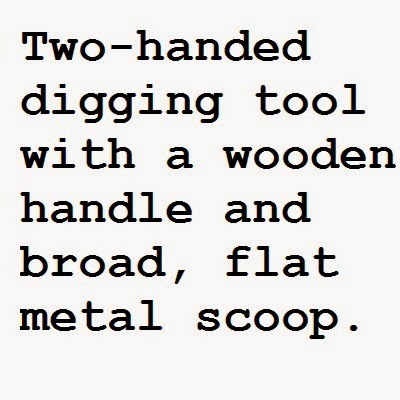
Or maybe you'd better just stick with indie author. When you are one, you'll find that often simple language is the best. So when you're writing, let's just call a spade a spade. It takes too long to look for synonyms for the word shovel.
By Any Other Name
When you're writing about a shovel, you can just call it a spade. People like flowery language, but they like simple honesty even more. When you're looking for a creative way to mention a shovel, or you're looking for a replacement for the word whisper, you're probably doing a little too much writing. You don't need to throw synonyms all over your book in order to make it good. For the most part, it's perfectly okay to end dialogue with "he said."
Simple words don't equal simple writing. Many authors fear this. Instead of using straightforward language, they look for flowery and complicated words instead. But big words are not a hallmark of good writing. All the best books that were ever written are composed from straightforward words that reflect the way people are talking at that moment in history. You've probably used the word shovel several times in your life. How many times have you actually described one instead?
The most complicated plots can be described in simple words, and the story will still be amazing. The best books are easy to read, and they become popular when they're easy for everyone to read. To do that, you need to use simple language. So just call me a blogger, instead of a self-reliant Internet diarist. That way, you can focus on simply being an author rather than an as...well, just be an author.

Or maybe you'd better just stick with indie author. When you are one, you'll find that often simple language is the best. So when you're writing, let's just call a spade a spade. It takes too long to look for synonyms for the word shovel.
By Any Other Name
When you're writing about a shovel, you can just call it a spade. People like flowery language, but they like simple honesty even more. When you're looking for a creative way to mention a shovel, or you're looking for a replacement for the word whisper, you're probably doing a little too much writing. You don't need to throw synonyms all over your book in order to make it good. For the most part, it's perfectly okay to end dialogue with "he said."
Simple words don't equal simple writing. Many authors fear this. Instead of using straightforward language, they look for flowery and complicated words instead. But big words are not a hallmark of good writing. All the best books that were ever written are composed from straightforward words that reflect the way people are talking at that moment in history. You've probably used the word shovel several times in your life. How many times have you actually described one instead?
The most complicated plots can be described in simple words, and the story will still be amazing. The best books are easy to read, and they become popular when they're easy for everyone to read. To do that, you need to use simple language. So just call me a blogger, instead of a self-reliant Internet diarist. That way, you can focus on simply being an author rather than an as...well, just be an author.
Published on January 21, 2015 05:30
January 20, 2015
Writing 101: Several Years' Worth of Punctuation Frustration
I often write about the writing problems that I encounter, and this is one that just won't go away. I have so much trouble when it comes to apostrophes and time, I'll usually find a way to re-write the sentence instead. The rule is confusing, and it's one that you'll have to memorize in order to get right.
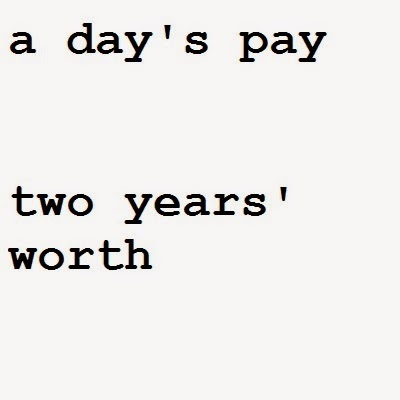
Punctuation Frustration
You can wait for a package to come for months, and you can wait for a month of Sundays. You can even wait a week's time for that package to come to your door. But when you have two weeks' worth of waiting piled up, punctuation gets totally flipping confusing. Yes, I'm about to come up with some better examples of how to do it correctly.
If you've got a week's worth of blog posts waiting for you, you're right. But if you have two weeks' worth of garbage in the can, you're also right (only punctuationally -- go take out the trash!).
When it comes to apostrophes and time, the punctuation follows the same basic rules as other plural possessive words. That means you can have a day's pay. It's possessive, and there is only one day. You know what that means: the apostrophe goes before the s.
But you can also have three weeks' leave. In this case, there is more than one week. Now the apostrophe has to move, because when something is plural possessive it goes behind the s.
How do you know where to put the apostrophe? Look at the measure of time you're using, and decide if it's plural or not. If there is more than one day, week, month, year or decade, it's plural. Remember that, and you'll get it right every time.
Published on January 20, 2015 05:30
January 19, 2015
Writing 101: Forums, What Are They Good For?
Reading writer forums was one of my New Year's resolutions, and for a few months I tried to stick with it. I added four new groups to my reader, and promptly hated my decision. After I started reading the forums, I fell even further behind on my review commitments and spent far too much time swearing at authors who will never know I scorned them. But the other day, I finally figured out a reason to really like reading the forums. I now know why this isn't the biggest possible waste of my time, or yours.
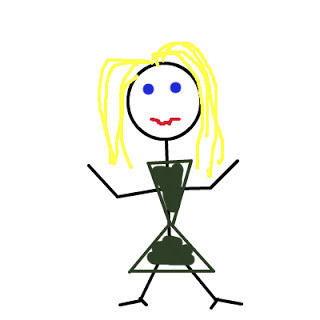
What I've Learned
I've made no secret of my forums frustration. I think would-be authors ask too many questions when they ought to be researching. I see the same questions over and over again. I groan and complain and roll my eyes, but I also know (now) that forums do serve a purpose.
It's not meeting other authors...you can do that on Twitter.
It's not getting help with research...that's what Google is for.
It's also not for promotion, unless implicitly stated. But forums are good for generating new ideas for blog posts. I get lots of blog ideas simply by reading what other authors are talking about. But you don't have to be a blogger in order to gain something from this exercise. Seeing the problems that other authors are having can help you avoid those same mistakes.
Writing and being an author is mostly trial and error. Forums can help you see other people's errors so you no longer have to make them. But I've learned something else about forums: they're only good in moderation. Be very picky about the forums you follow and the threads you read. As an indie author, your time is very valuable. Be careful how you spend it, and make sure you're getting something out of it when you do.

What I've Learned
I've made no secret of my forums frustration. I think would-be authors ask too many questions when they ought to be researching. I see the same questions over and over again. I groan and complain and roll my eyes, but I also know (now) that forums do serve a purpose.
It's not meeting other authors...you can do that on Twitter.
It's not getting help with research...that's what Google is for.
It's also not for promotion, unless implicitly stated. But forums are good for generating new ideas for blog posts. I get lots of blog ideas simply by reading what other authors are talking about. But you don't have to be a blogger in order to gain something from this exercise. Seeing the problems that other authors are having can help you avoid those same mistakes.
Writing and being an author is mostly trial and error. Forums can help you see other people's errors so you no longer have to make them. But I've learned something else about forums: they're only good in moderation. Be very picky about the forums you follow and the threads you read. As an indie author, your time is very valuable. Be careful how you spend it, and make sure you're getting something out of it when you do.
Published on January 19, 2015 05:30
January 15, 2015
Writing 101 Redux: Single or Double Spaces?
Do you type two spaces after a period, or just one? It's a subject of some debate among the writing community and editors of all kinds. If you want to know where I stand on the issue (and maybe you can already tell), you have to journey with me back to 2012 and the beginnings of the blog.
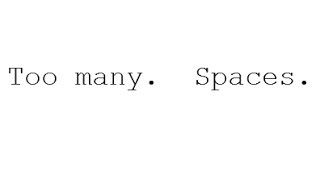
For Throwback Thursday, we're going to re-visit double-spacing in books...and why I have such a strong opinion about it.

For Throwback Thursday, we're going to re-visit double-spacing in books...and why I have such a strong opinion about it.
Published on January 15, 2015 05:30
January 14, 2015
Lust and Love with 'Song of the Sea'
"The YA fantasy genre needs more books of this kind."

"The story of Brenna‘s search for her mother is inspiring and relatable.The writing is fresh and crisp. As a reader, I just fell in love with the female protagonist."
My newest book, "Song of the Sea," has been reviewed at Booklust. Go take a look at it before you buy the book at Amazon!

"The story of Brenna‘s search for her mother is inspiring and relatable.The writing is fresh and crisp. As a reader, I just fell in love with the female protagonist."
My newest book, "Song of the Sea," has been reviewed at Booklust. Go take a look at it before you buy the book at Amazon!
Published on January 14, 2015 11:30
Writing 101: The FANBOYS Grammar Hack
I'd like to tell you about a grammar hack, For all writers can benefit from using tricks, And I like to talk about grammar. I'm not an expert, Nor am I a teacher, But I don't want to make mistakes. It's either make them, Or learn how to use grammar. Anyone can learn this, Yet many still get it wrong. Don't be one of them. It's time for you to learn how to use the FANBOYS, So you can always get it right.
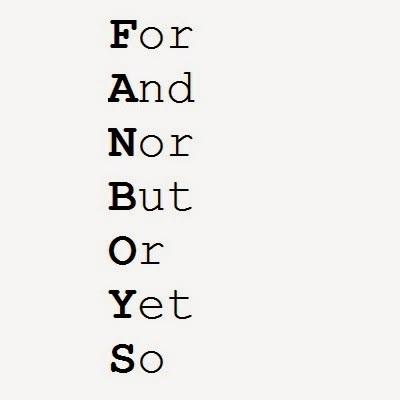
Let's Hear it for the Boys
FANBOYS are a group of coordinating conjunctions. They're special because they all follow the same grammar rule. Do you know what it is? Read the first paragraph again to see if you can figure it out.
The FANBOYS almost always come into a sentence after a comma. All of these words link clauses together. They bring together two separate thoughts, if you will.
She worked hard, For she knew the value of earning her keep. I looked for him, And I even talked to his sister. He couldn't find them in the dell, Nor in the hills. I thought it looked sort of backward, But it sounded okay. Either we can eat the potatoes here, Or we can eat them in the field. I'm compelled to use commas the right way, Yet I must remember the rules. Do you understand commas now, So you can use them the right way all the time?

Let's Hear it for the Boys
FANBOYS are a group of coordinating conjunctions. They're special because they all follow the same grammar rule. Do you know what it is? Read the first paragraph again to see if you can figure it out.
The FANBOYS almost always come into a sentence after a comma. All of these words link clauses together. They bring together two separate thoughts, if you will.
She worked hard, For she knew the value of earning her keep. I looked for him, And I even talked to his sister. He couldn't find them in the dell, Nor in the hills. I thought it looked sort of backward, But it sounded okay. Either we can eat the potatoes here, Or we can eat them in the field. I'm compelled to use commas the right way, Yet I must remember the rules. Do you understand commas now, So you can use them the right way all the time?
Published on January 14, 2015 05:30
January 13, 2015
Writing 101: Adjectives and Commas
One of the first lessons you learn in school is to put a comma between your adjectives, just like I'm doing when I say I'm truly, madly, deeply in love with commas. I'm lying, but at least I'm grammatically correct. But here's the problem: that lesson is wrong. You don't always put a comma between your adjectives. You only put them between coordinate adjectives. With cumulitive adjectives, you don't. Yes, I'm about to explain what that means.
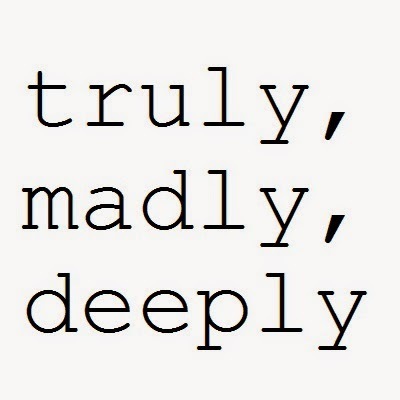
Little Brown Ball
You should always put commas between coordinate adjectives, which are descriptive words that are similar to each other. For example, if the painting is black, brown, blue and green, those adjectives coordinate because they're all colors. They all go together and fit in the same group. There is a simple way to test if adjectives are coordinating or not.
Add and. Is the painting still the same if it is black and brown and blue and green instead? To further test your adjectives, switch them around and see if the sentence still works. Can the painting be blue and black and green and brown? If it can, you've got some coordinating adjectives on your hands.
If you do not have coordinate adjectives, you're working with cumulative adjectives. This is where the little brown ball comes in. The ball can be little and it can be brown, but those two adjectives aren't the same. One is describing the color of the ball, the other the size. They don't coordinate. Therefore, they don't get split up with a comma.

Little Brown Ball
You should always put commas between coordinate adjectives, which are descriptive words that are similar to each other. For example, if the painting is black, brown, blue and green, those adjectives coordinate because they're all colors. They all go together and fit in the same group. There is a simple way to test if adjectives are coordinating or not.
Add and. Is the painting still the same if it is black and brown and blue and green instead? To further test your adjectives, switch them around and see if the sentence still works. Can the painting be blue and black and green and brown? If it can, you've got some coordinating adjectives on your hands.
If you do not have coordinate adjectives, you're working with cumulative adjectives. This is where the little brown ball comes in. The ball can be little and it can be brown, but those two adjectives aren't the same. One is describing the color of the ball, the other the size. They don't coordinate. Therefore, they don't get split up with a comma.
Published on January 13, 2015 05:30



